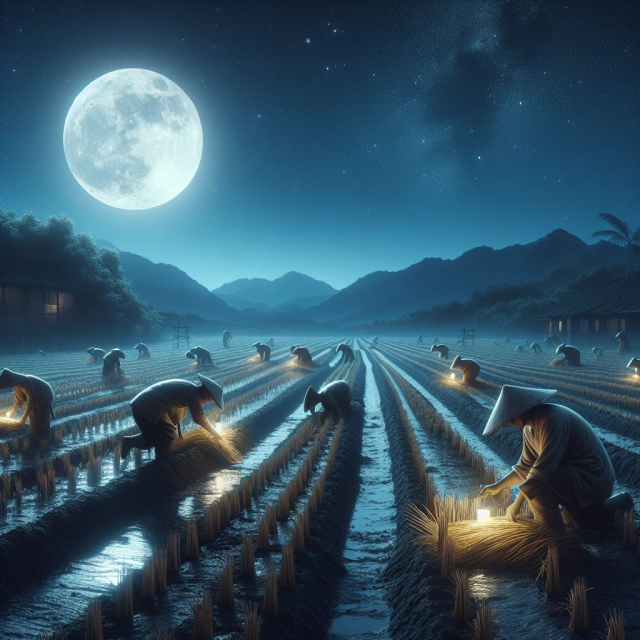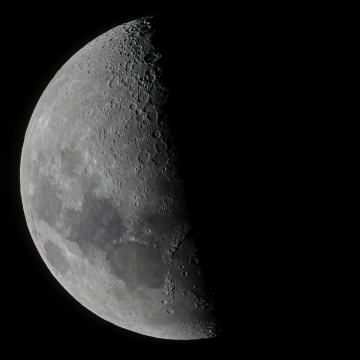Agriculture has been intrinsically linked to natural cycles for millennia, and one of the most fascinating and debated aspects is the Moon's influence on plant growth and crop productivity. In this article, we will explore in detail the best days in July 2024 to sow according to the Moon, taking advantage of the different lunar phases to optimize the performance of our crops.
The influence of the Moon on agriculture.
Belief in the Moon's influence on agriculture dates back to ancient times and has been a common practice in many agricultural cultures. Although modern science has not yet fully confirmed this influence, many farmers continue to follow ancient traditions based on the lunar phases to maximize the productivity of their crops.
New Moon: During this phase, the Moon is between the Earth and the Sun, and its light is minimal. The energy of the new Moon is believed to promote the growth of plant roots, making it an ideal time to plant crops that require strong underground development.
First quarter: During this phase, the moonlight is gradually increasing. It is considered a good time to plant crops that produce fruits and seeds, as lunar energy is believed to promote vigorous growth and good fruit production.
Full Moon: During this phase, the Moon is completely illuminated by the Sun. Although there are conflicting opinions, some believe that the full Moon is a good time to plant certain crops, as it is associated with greater humidity in the soil and in the plants, which could favor the germination of seeds.
Last Quarter: During this phase, the moonlight is gradually decreasing. It is believed that this is an auspicious time for sowing root crops, as it is associated with strong root growth and lower activity of the aerial part of the plants.
The best days in July 2024 to sow according to the Moon.
Saturday, July 6: Waxing quarter.
The first quarter begins on July 6, making it an optimal time to plant crops that produce fruits and seeds. Take advantage of this lunar phase to plant your tomatoes, pumpkins, cucumbers and other crops that depend on good fruit production.
Sunday, July 14: Full Moon.
July 14 marks the full moon phase, which some consider a good time to plant due to the greater humidity in the soil and plants. Take advantage of this day to sow your leafy green crops such as lettuce, spinach and chard, which can benefit from wetter conditions for successful germination.
Monday, July 22: Last quarter.
With the last quarter on July 22, it is an ideal time to plant root crops such as carrots, radishes, beets and potatoes. During this phase, lunar energy favors root growth, which can result in better underground development of these crops.
Wednesday, July 31: New Moon.
The lunar cycle begins again with the new Moon on July 31. This lunar phase is ideal for sowing crops that require strong root development, such as onions, garlic and parsnips. Take this opportunity to prepare the soil and plant your root crops, making sure to provide them with the right conditions for growth.
The importance of following the lunar calendar in agriculture.
The importance of following the lunar calendar in agriculture lies in recognizing and taking advantage of the natural cycles that affect crop growth and soil health. For centuries, farmers have observed the Moon's influence on the natural world, and have developed farming methods that are in tune with these cosmic forces.
One of the reasons the lunar calendar is important in agriculture is its ability to optimize crop yields. Each lunar phase presents unique atmospheric and energetic conditions that can influence crucial aspects such as seed germination, plant growth, and fruit and vegetable production. For example, planting during the first quarter, when lunar energy favors vigorous growth, can result in more robust plants and greater production. Likewise, sowing during the full moon, when humidity is higher, can be beneficial for the germination of certain crops.
Furthermore, following the lunar calendar in agriculture can contribute to more sustainable and environmentally friendly management. By planting in harmony with natural cycles, farmers can reduce dependence on chemicals and fertilizers, and encourage agricultural practices that promote biodiversity and soil health. This not only benefits crops and the environment, but can also have a positive impact on the quality and safety of the food produced.
Another reason why the lunar calendar is important in agriculture is its ability to improve the planning and efficiency of agricultural operations. By knowing the best dates to plant, cultivate, prune and harvest according to the lunar phase, farmers can organize their tasks more effectively and maximize the use of resources such as labor, water and equipment. This can result in more efficient farm management and greater long-term profitability.
Additionally, following the lunar calendar can be a way to farm in harmony with nature and develop a greater connection to the cycle of life on earth. By observing and respecting natural rhythms, farmers can promote biodiversity and sustainability in their agricultural practices.
Planting at the right time can make the difference in the success of a harvest. In July 2024, take advantage of the different lunar phases to plant your crops at the optimal times according to lunar energy. Whether you are planting fruits, vegetables, roots or legumes, follow the lunar calendar and grow in harmony with natural cycles for the best results in your garden or field.






